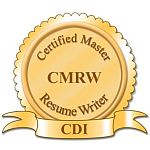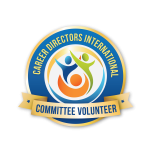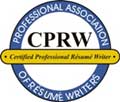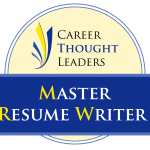 I recently reviewed a resume for a potential client. He had written it himself and hadn’t done too badly. It was well-constructed, contained quantifiable, qualifiable examples of his accomplishments and had a pleasing aesthetic. But something was missing in his presentation. He wrote from the “I know it, so everyone else must know it” perspective.
I recently reviewed a resume for a potential client. He had written it himself and hadn’t done too badly. It was well-constructed, contained quantifiable, qualifiable examples of his accomplishments and had a pleasing aesthetic. But something was missing in his presentation. He wrote from the “I know it, so everyone else must know it” perspective.
One of his bullets read: (Edited to protect confidentiality)
- Converted organization to include production capabilities with {name of specific software}
Sounds like a “good” resume bullet, right? However, by assuming “everyone” would understand what “converting the organization” entailed, he missed a perfect opportunity to tell his story and differentiate his unique skill set. He was trying to break out of his current industry, yet mentioned software by name, rather than function. Most likely, only individuals in his current industry would recognize the software and its significance. He left his “non-industry target audience” wondering what the software did and, more importantly, what it meant mean for them and their company. Without telling the organizational conversion story, he buried his skills. He expected the reader to somehow “magically” know what skills his sentence was trying to convey.
Unfortunately using such a myopic approach to the presentation of skills undersells the job seeker and leaves lots of “saleable” information uncovered and unstated. Use an “If I don’t tell them; they won’t know” perspective instead. And please, that’s not carte blanche to tell absolutely everything. Focus on your audience. Target your skills to respond to their needs. Differentiate your talents – boldly and unequivocally.
I frequently use this line in response to the “Why isn’t my resume working?” question.
“Flopping duties on a sheet of paper and hoping a hiring authority will extrapolate accomplishments and figure out where you fit in the organization doesn’t work.”
It is not up to the hiring authority to figure out where you fit; it is up to you to tell them. Adjust your perspective to that of the reader when crafting your resume and be sure to incorporate that approach in everything search related – written, verbal and everything in between. Sometimes, a slight change in approach nets substantial results.

 Link to this page
Link to this page













[…] This post was mentioned on Twitter by Dawn Bugni, AlfredStateCareerDev. AlfredStateCareerDev said: RT @DawnBugni: Blogging it: "What's your perspective?" http://is.gd/l7JYJa <– Don't leave saleable information unstated. […]
Great advice, Dawn. I’ve seen this too and suspect it’s epidemic the longer people stay with the same companies or industries. I worked with a client last week who assured me that anyone in XYZ industry would “use those words” and to not use them in his resume would make him sound inexperienced. He didn’t convince me but such is life. He’s still so uncertain about where he wants to go next, there will other chances to fix things. It was such a comfort to read your post and feel the “love.” 🙂 ~Other Dawn
Hi Dawn!
I always love it when there’s a double dose of “Dawn wisdom” on my blog!
“Assumptive thinking” jades our perspective and sometimes our responses when practiced outside job search. For example, someone didn’t respond to an email and the “assumptions” start. We usually run several me-centric scenarios about the lack of response, ranging from “What have I done to make them not want to answer?” to “Well, I guess they think they’re too good to respond to ME!” — each one increasingly bitter and “poor, pitiful me” focused. In reality, they’re not “ignoring” us; WE typed the email address wrong.
Looking outside our personal perspective and running broader, more logical scenarios improves communication in all aspects of our lives.
Thanks for stopping by.
Hi Dawn!
Thanks for using this example to hightlight how important it is to get a trusted person’s perspective on whether your intended message is clear.
It can be so easy to just assume a skill or accomplishment is obvious, and miss an opportunity to tell the reader exactly what they need to know to extend an interview invitaiton.
Each of us can use an objective set of eyes and ears. Part of what makes you such a great ally for your clients is your ability to be such a resource for them!
[…] She didn’t have to come across “so professional” on paper. (News flash: If you don’t tell a potential employer; they don’t know. If you don’t appear professional; they’ll assume you’re not. They have no […]